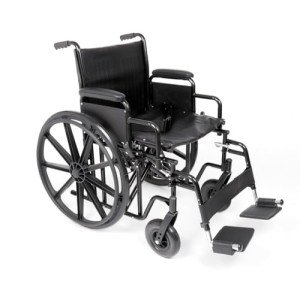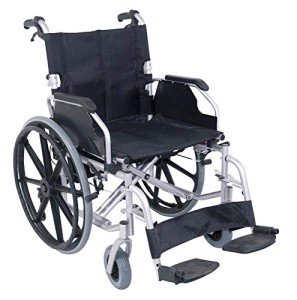10 Tell-Tale Signs You Need To Know Before You Buy Bariatric Living Ai…
페이지 정보
Gregory Koerstz 작성일25-02-08 03:22본문
bariatric wheelchair uk Living Aids
Bariatric (overweight) clients require strong mobility aids to assist them maintain independence. Utilizing small equipment increases personnel stress and threats injuries to both the client and caregiver.
Guarantee that equipment is correctly sized by performing home evaluations. Broaden corridors, doors, and ramps if needed for bariatric aids equipment to securely access homes.
Walking Aids
Strolling aids are bariatric mobility equipment suggested by a doctor or physiotherapist to keep your independence and assist you recover from injuries, surgery or pain. They are also utilized long term for individuals with muscle weak point or balance issues. They are readily available in a range of types to satisfy your requirements including, canes, rollators and walkers for greater stability.
Physio therapists are the most certified to examine your requirements and prescribe the best walking help for you. This evaluation includes a review of your practical status, everyday mobility requirements (e.g. browsing limits, public transport) and your risk aspects for falls such as cardiovascular, musculoskeletal and neurological.
A good physiotherapist will be able to provide the ideal bariatric walking aid for you, which consists of a proper prescription based on your height, bariatric mobility equipment weight and health care plan along with a thorough rehab programme. This will optimise your recovery and reduce the threat of future injury.
Bariatric medical equipment such as bariatric walking canes, commodes, shower chairs and wheelchairs are developed to accommodate bigger patients who require mobility support. Typically basic medical products can not support the added weight therefore needs to be customized with extra bracing to guarantee that they are safe to utilize. This modification is an important step to help individuals with obesity feel more positive about living independently in their own homes, and it can likewise make their experience at medical facility and other medical facilities more workable by minimizing the likelihood of them being declined for admission or treatment due to an absence of appropriate mobility equipment.
Crutches
Crutches are a reliable bariatric living help for individuals who need assistance while strolling. They take weight off of one leg and permit the user to press through their hands instead of their knees or feet, helping them to move faster and more effectively than they would have the ability to do otherwise. They likewise help to avoid pressure on the hurt knee or foot, which can cause further pain and discomfort.
 When using crutches, it is essential toss and anxiety for patients who have a hard time with going to the bathroom by themselves.
When using crutches, it is essential toss and anxiety for patients who have a hard time with going to the bathroom by themselves.
Essentially, a commode is a chair with a cutout in the seat that acts as a toilet. A lot of have actually a pot connected under the cutout that acts as a collection pail for waste. The commode can be utilized as a standalone toilet or over an existing one, and many have detachable legs to allow it to fold flat for storage. There are a number of kinds of bedside commodes available, and some may be covered by insurance, so it's crucial to consult your healthcare supplier and insurance company.
Shower Chairs
For people who are unable to represent extended periods, entering and out of the bathtub can be hard. Falling while attempting to shower can result in severe injuries and pain. Shower chairs, also referred to as bath chairs, are a bariatric living aid that can help avoid falls and make bathing more secure.
 There are a wide array of shower chairs to fit the needs of different individuals. For example, a basic shower chair with or without back can support up to 300 pounds while swivel models allow users to sit in the tub and orient themselves in a position to reach the shower knobs, soap, etc. Some shower chairs can likewise be rolled over the toilet to function as a commode seat and are available with or without arms.
There are a wide array of shower chairs to fit the needs of different individuals. For example, a basic shower chair with or without back can support up to 300 pounds while swivel models allow users to sit in the tub and orient themselves in a position to reach the shower knobs, soap, etc. Some shower chairs can likewise be rolled over the toilet to function as a commode seat and are available with or without arms.
When selecting a shower chair, it is necessary to take measurements of the space and tub to guarantee that the chair will be able to fit properly. In addition, some people discover it useful to place non-slip shower mats both inside and beyond the shower to assist keep the chair from sliding, particularly if water gets on the flooring.
Numerous people who use shower chairs find that they can be more comfortable while sitting in them than on a bath stool, which can be more unpleasant for extended periods of time and may not have an adjustable height setting. However, a shower stool can still be beneficial for people who have the ability to get in and out of the tub with relative ease and are just searching for some additional stability while bathing.
Individuals who wish to buy bariatric wheelchair a shower chair will need to have a physician write a prescription for it and perhaps work with their Medicare Advantage strategy or private insurance company to see if they can get protection for the item. In some cases, an individual who has significant mobility issues might be able to have the shower chair covered by Medicaid. If that's the case, the person must talk with their state Medicaid agency to identify what the rules and guidelines are for that location.
Bariatric (overweight) clients require strong mobility aids to assist them maintain independence. Utilizing small equipment increases personnel stress and threats injuries to both the client and caregiver.
Guarantee that equipment is correctly sized by performing home evaluations. Broaden corridors, doors, and ramps if needed for bariatric aids equipment to securely access homes.
Walking Aids
Strolling aids are bariatric mobility equipment suggested by a doctor or physiotherapist to keep your independence and assist you recover from injuries, surgery or pain. They are also utilized long term for individuals with muscle weak point or balance issues. They are readily available in a range of types to satisfy your requirements including, canes, rollators and walkers for greater stability.
Physio therapists are the most certified to examine your requirements and prescribe the best walking help for you. This evaluation includes a review of your practical status, everyday mobility requirements (e.g. browsing limits, public transport) and your risk aspects for falls such as cardiovascular, musculoskeletal and neurological.
A good physiotherapist will be able to provide the ideal bariatric walking aid for you, which consists of a proper prescription based on your height, bariatric mobility equipment weight and health care plan along with a thorough rehab programme. This will optimise your recovery and reduce the threat of future injury.
Bariatric medical equipment such as bariatric walking canes, commodes, shower chairs and wheelchairs are developed to accommodate bigger patients who require mobility support. Typically basic medical products can not support the added weight therefore needs to be customized with extra bracing to guarantee that they are safe to utilize. This modification is an important step to help individuals with obesity feel more positive about living independently in their own homes, and it can likewise make their experience at medical facility and other medical facilities more workable by minimizing the likelihood of them being declined for admission or treatment due to an absence of appropriate mobility equipment.
Crutches
Crutches are a reliable bariatric living help for individuals who need assistance while strolling. They take weight off of one leg and permit the user to press through their hands instead of their knees or feet, helping them to move faster and more effectively than they would have the ability to do otherwise. They likewise help to avoid pressure on the hurt knee or foot, which can cause further pain and discomfort.
 When using crutches, it is essential toss and anxiety for patients who have a hard time with going to the bathroom by themselves.
When using crutches, it is essential toss and anxiety for patients who have a hard time with going to the bathroom by themselves.Essentially, a commode is a chair with a cutout in the seat that acts as a toilet. A lot of have actually a pot connected under the cutout that acts as a collection pail for waste. The commode can be utilized as a standalone toilet or over an existing one, and many have detachable legs to allow it to fold flat for storage. There are a number of kinds of bedside commodes available, and some may be covered by insurance, so it's crucial to consult your healthcare supplier and insurance company.
Shower Chairs
For people who are unable to represent extended periods, entering and out of the bathtub can be hard. Falling while attempting to shower can result in severe injuries and pain. Shower chairs, also referred to as bath chairs, are a bariatric living aid that can help avoid falls and make bathing more secure.
 There are a wide array of shower chairs to fit the needs of different individuals. For example, a basic shower chair with or without back can support up to 300 pounds while swivel models allow users to sit in the tub and orient themselves in a position to reach the shower knobs, soap, etc. Some shower chairs can likewise be rolled over the toilet to function as a commode seat and are available with or without arms.
There are a wide array of shower chairs to fit the needs of different individuals. For example, a basic shower chair with or without back can support up to 300 pounds while swivel models allow users to sit in the tub and orient themselves in a position to reach the shower knobs, soap, etc. Some shower chairs can likewise be rolled over the toilet to function as a commode seat and are available with or without arms.When selecting a shower chair, it is necessary to take measurements of the space and tub to guarantee that the chair will be able to fit properly. In addition, some people discover it useful to place non-slip shower mats both inside and beyond the shower to assist keep the chair from sliding, particularly if water gets on the flooring.
Numerous people who use shower chairs find that they can be more comfortable while sitting in them than on a bath stool, which can be more unpleasant for extended periods of time and may not have an adjustable height setting. However, a shower stool can still be beneficial for people who have the ability to get in and out of the tub with relative ease and are just searching for some additional stability while bathing.
Individuals who wish to buy bariatric wheelchair a shower chair will need to have a physician write a prescription for it and perhaps work with their Medicare Advantage strategy or private insurance company to see if they can get protection for the item. In some cases, an individual who has significant mobility issues might be able to have the shower chair covered by Medicaid. If that's the case, the person must talk with their state Medicaid agency to identify what the rules and guidelines are for that location.
댓글목록
등록된 댓글이 없습니다.

















